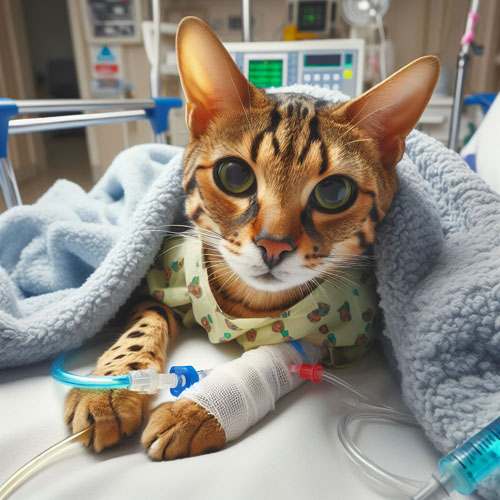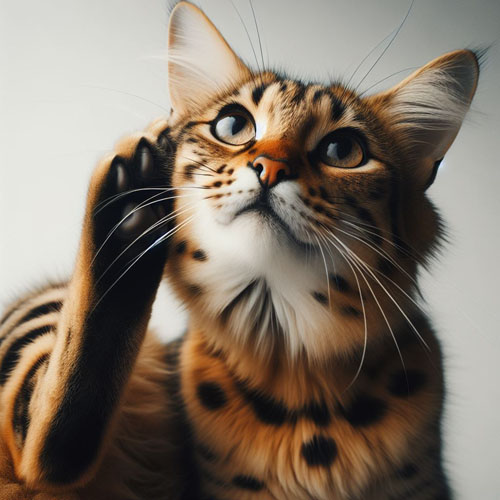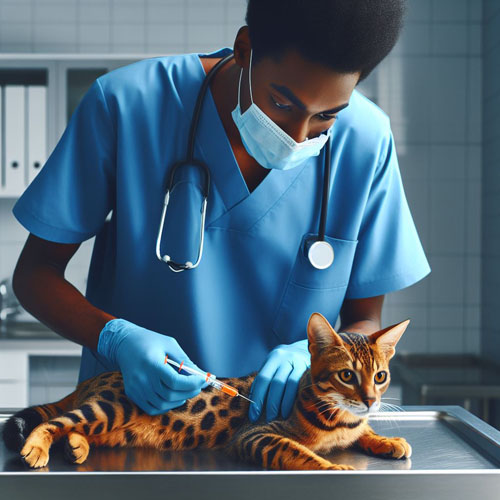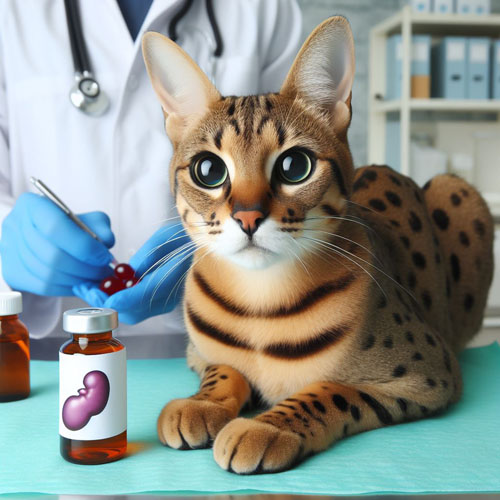Unmasking Cardiomyopathy in Savannah Cats: A Comprehensive Guide
Savannah cats, with their exotic appearance and playful demeanor, have captured the hearts of cat enthusiasts around the world. However, behind their striking exterior lies a vulnerability that cat owners should be aware of—cardiomyopathy. In this comprehensive guide, we delve into the intricacies of cardiomyopathy in Savannah cats, exploring its causes, symptoms, diagnosis, treatment, and preventive measures.
Understanding Cardiomyopathy: Cardiomyopathy is a heart disease that affects the muscles of the heart, compromising its ability to pump blood effectively. In Savannah cats, hypertrophic cardiomyopathy (HCM) is the most common type observed. This condition involves the thickening of the heart muscles, leading to potential complications.
Causes of Cardiomyopathy in Savannah Cats: While the exact cause of cardiomyopathy in Savannah cats is not fully understood, there are several factors that may contribute to its development. Genetics play a significant role, and certain lines of Savannah cats may be predisposed to this heart condition. Additionally, diet, obesity, and other underlying health issues can contribute to the manifestation of cardiomyopathy.
Symptoms of Cardiomyopathy: Identifying the symptoms of cardiomyopathy in Savannah cats is crucial for early detection and intervention. Common signs may include:
- Breathing difficulties: Rapid or labored breathing can be an early indicator of heart problems.
- Lethargy: A sudden decrease in energy levels or reluctance to engage in normal activities.
- Coughing: Persistent coughing, especially during physical activity, may signal heart-related issues.
- Weight loss: Unexplained weight loss despite a consistent appetite.
- Enlarged abdomen: Fluid retention due to heart failure can lead to a swollen or distended belly.
- Weakness: A noticeable decline in overall strength and stamina.
Diagnosing Cardiomyopathy: If you observe any of these symptoms in your Savannah cat, prompt veterinary attention is essential. Diagnosis typically involves a thorough physical examination, auscultation of the heart, and imaging studies such as echocardiography. Blood tests may also be conducted to rule out other potential causes of the symptoms.
Treatment Options: While there is no cure for cardiomyopathy, various treatment options can help manage the condition and improve the quality of life for affected Savannah cats.
- Medication: Veterinary-prescribed medications, such as beta-blockers and ACE inhibitors, may be administered to alleviate symptoms and improve heart function.
- Dietary Management: A specialized diet low in sodium may be recommended to reduce fluid retention and ease the workload on the heart.
- Weight Management: Maintaining a healthy weight through proper diet and regular exercise can be crucial in managing cardiomyopathy.
Preventive Measures: Preventing cardiomyopathy in Savannah cats involves a combination of responsible breeding practices and proactive care.
- Genetic Screening: Responsible breeders should conduct genetic screening to identify and avoid breeding cats with a predisposition to cardiomyopathy.
- Regular Veterinary Check-ups: Routine veterinary examinations, including heart assessments, can aid in early detection and intervention.
- Balanced Nutrition: Providing a well-balanced diet that meets the nutritional needs of Savannah cats is essential for overall health.
- Weight Monitoring: Maintaining a healthy weight and preventing obesity can reduce the risk of heart-related issues.
Emotional Support for Owners: Dealing with a diagnosis of cardiomyopathy in your beloved Savannah cat can be emotionally challenging. Seek support from your veterinarian, who can provide guidance on managing the condition and improving your cat’s well-being. Additionally, online communities and support groups for Savannah cat owners can offer valuable insights and shared experiences.
Conclusion: While cardiomyopathy poses a potential threat to Savannah cats, early detection, proactive care, and responsible breeding practices can significantly impact the outcome. By staying vigilant for symptoms, seeking prompt veterinary attention, and embracing preventive measures, you can ensure a healthier and happier life for your cherished feline friend.
Keywords: Cardiomyopathy in Savannah cats, Hypertrophic cardiomyopathy (HCM), Symptoms and diagnosis (HCM), Treatment options and management, Preventive measures and responsible breeding





